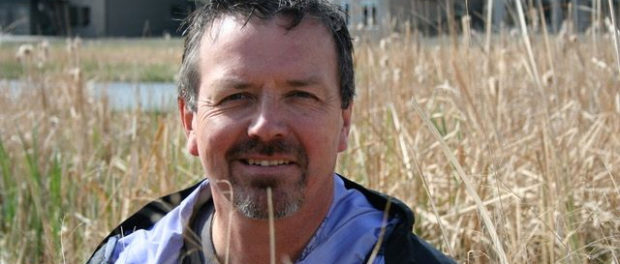
Rick Baydack receives Excellence in Wildlife Education Award
After more than 40 years in higher education, Rick Baydack is not just working with a tight circle of graduate students. He still teaches his share of undergrad classes and intro courses for first-year students. And lately, he’s started teaming with his wife, Leslie Goodman, to lead basic environmental science courses for international students who haven’t even been accepted into college yet.
“She started teaching the intro to the environment class,” Baydack said. “There was such a strong demand, now we do a 50-50 split on courses. I do most of the ecosystem classes. She’s an aquatic ecologist. It’s been a neat experience — sort of late in my career getting to know some of these international intricacies.”
The program is part of the International College of Manitoba, which brings students from around the world for preparatory classes to ready them to enroll at the University of Manitoba. Baydack has spent 41 years at the university, transitioning from lecturer to chair of the faculty of environmental sciences and studies. He helped create the university’s wildlife program, where he has emphasized getting students in the field and providing individualized instruction to them.
“What I tell students is, I’m there to help them meet their own goals, expectations and needs,” he said. “That’s what I see my job as.”
His work has earned him the TWS 2020 Excellence in Wildlife Education Award, which celebrates sustained exemplary teaching and contributions to the improvement of wildlife education.
“I would argue Dr. Baydack is among a very elite few who have been as active on the provincial, national and international front in promoting the forward thinking of how to best educate, train and foster new wildlife professionals to meet the changing needs of wildlife profession. Both his words and his actions speak loudly,” wrote Evelyn Merrill, who nominated him for the award.
“That was quite the honor,” Baydack said of the award.
He joined the University of Manitoba faculty in 1979, where he quickly moved up the ranks and helped create the university’s wildlife conservation program — a program that emphasizes experiential learning. Students get their feet wet walking through streams, pick up guns to learn about hunting and shadow career professionals to understand the work of wildlife managers.
“I’ve really tried hard to teach my students in the field as much as possible,” Baydack said. “You can watch videos and do some things in the lab, but it’s not the same as being out in the natural world. That’s why I strive to get their hands dirty and their feet wet.”
Some students find wildlife biology isn’t for them, but many go on to robust careers (read about one whom he inspired). In his time at the university, Baydack has supervised 70 graduate students directly, been on the about another 99 students’ committees and had over 500 undergraduate advisees.
Technology has changed over the past four decades, Baydack said, but the principles of wildlife biology haven’t. He says he’s optimistic about the upcoming generations of wildlife professionals.
“They have a different appreciation than the earlier generations,” he said. “I think they have a better recognition that the environment — and I don’t want to make it sound exaggerated — but the environment needs saving. I think they see themselves as being part of that solution and trying to no longer be part of the problem. I’m very positive about what the future will bring.”
This article originally appeared on the Wildlife Society website.






